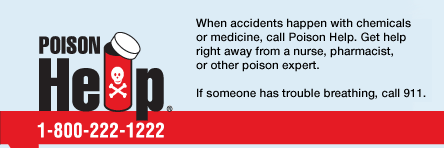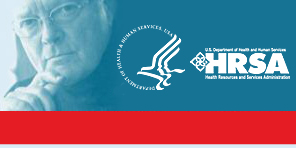

 |

|
Seasonal Tips: Spring (PDF, 88 KB) Visit the Adobe Reader Web site and follow the instructions to download the appropriate version of Adobe Reader for your operating system. POISON HELP 1-800-222-1222 PoisonHelp.hrsa.gov When accidents happen with chemicals or medicine, call Poison Help (1-800-222-1222). Get help right away from a nurse, pharmacist, or other poison expert. SEASONAL TIPS Household Cleaners and Other Chemical Products • Keep poisons in the containers they came in. Do not use food containers (such as cups or bottles) to store household cleaners and other strong chemicals. • Store strong chemicals away from food. Many poisonings occur when one product is mistaken for another. • Read and follow the directions for use of products. Do this BEFORE using the products. Follow the advice carefully. • Never mix chemicals. Doing so can create a poisonous gas. • Discard old or outdated products. First aid advice on containers may be incorrect and outdated. • Even in small amounts, windshield wiper fluid is poisonous. If swallowed, it can cause blindness or death to people and pets. • Strong chemicals can burn the skin. Drain openers, toilet cleaners, rust removers, and oven cleaners can cause such burns. • Hydrocarbon liquids (liquids made from petroleum) are poisonous. They include gasoline, kerosene, charcoal lighter fluid, paint thinner, baby oil, lamp oil, and furniture polish. • If hydrocarbons are swallowed, they can easily get into the lungs. Even a small amount can cause breathing problems. The liquid coats the inside of the lungs. That prevents oxygen from entering the blood stream. Mushrooms • Only experts can tell poisonous mushrooms from safe mushrooms. • Eating even a few bites of certain mushrooms can cause liver damage that can kill you. Pesticides • Pesticides (pest killers) can be taken in through the skin or inhaled. Even leather shoes and gloves do not offer full protection. Pesticides can be extremely poisonous. Stay away from areas that have been sprayed until the spray has dried or for at least one hour. • Wear protective clothing when using bug spray or other spray products. Put on a long-sleeve shirt, long pants, socks, shoes, and gloves. Remove and wash clothing after using chemicals. • If pesticides are splashed onto the skin, rinse with running water for 15-20 minutes. If pesticide contactsclothing, take off the clothing before rinsing skin. • Many garden chemicals are poisonous to children and adults. These chemicals can be harmful if swallowed or inhaled.
|
|